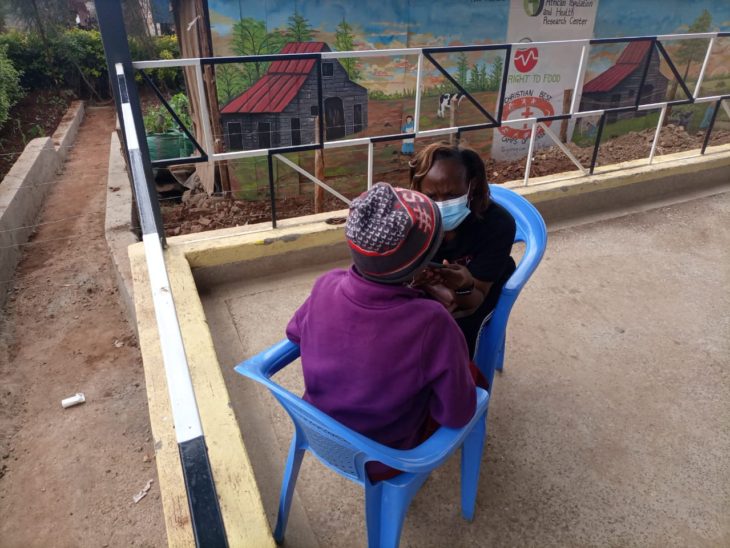By Terry Nzau,
NAIROBI, Kenya, Jun 28- Mercy, not her real name, is a 21-year-old girl living in Kibera slums, Nairobi and like many other youth in this area, she has a story to tell.
Mercy is living with HIV and is currently 7-months pregnant. She will undergo a cesarean delivery as advised by the doctor.
This story highlights the plight of Mercy and paints of a picture of the situation for thousands of others in Kibra and across the country, largely driven by unemployment.
Due to her pregnancy, her relationship with her mother is now more strained than it was before. She has been caught up in a Catch-22 situation.
“The father of the child no longer talks to me after he learnt that I am pregnant. I am all alone,” she said.
She was born HIV positive, to her mother-who is not married.
It is in the process of seeking a better life, that she has found herself in a similar predicament like that of her mother- who is now very furious with her.
Mercy cleared her Kenya Certificate of Secondary Education (KCSE) in 2018 but has never landed a job or pursued higher education.
“Unemployment and the desperation that comes with it pushed me to this,” she said.
The situation has become more complicated for her since the COVID-19 pandemic struck the country in March, 2020, leading to massive job losses among those earning a living from the informal sector.
“As you can see my body is weak, I often get sick and I am not financially stable,” she said during an interview with Shahidi News.
She got herself in this situation, Mercy said, while trying to look for the basics- pads and food.
While it is the role of the government to build the economy so that there can be more job opportunities for all, she directs her wrath to her mother- maybe subconsciously so.
“Every time I asked for money to buy these things, she would ask me why I was not like other girls,” she narrated.
“My mum accuses me of being the reason why she is HIV positive, since she got infected by my father whom I don’t know. It is sad since I don’t know how to reverse it. I was born HIV positive myself, who do I blame?”
She resulted to engaging in unprotected sex with her boyfriend, who she said knew of her status, just so that she can “be like other girls. I needed food, pads and other stuff needed by girls.”
By September 2020, the Kenya National Bureau of Statistics estimated that around 1.7 million people were made redundant due to the COVID-19 outbreak.
Stringent measures meant to curb the spread of the disease including a dawn to dusk curfew, that reduce working hours, were attributed to this.
Kenya is far from recovering from the economic meltdown, and until then, millions of Kenyans and mostly the youth- will continue ravaging in poverty.
Young girls living in informal settlement areas like Mercy are even more vulnerable.
Thousands of teenagers have also been impregnated during the period.
Terry Nzau is a Journalist Based in Nairobi, Kenya, a PhD Student, with a passion of telling human interest stories. She is also a News Editor at Mbaitu FM.
Want to send us a story? Contact Shahidi News Tel: +254115512797 (Mobile & WhatsApp)


